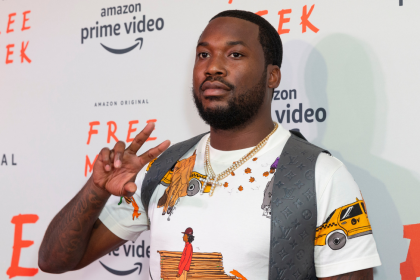Tyla says fame has robbed her of a normal life and she can’t go anywhere without security now. The rapid rise to stardom has fundamentally changed her daily routines and personal freedom in unexpected ways.
The 23-year-old singer got her break after releasing single ‘Water” in July 2023 which became a major hit, partly thanks to a viral dance to the track that became a major trend on TikTok. The song has become one of the most streamed African songs across various platforms worldwide.
Although Tyla is grateful to have her music recognised and have so many fans she has had to sacrifice her privacy and doing regular things like ordering food at a Nando’s restaurant. The South African restaurant chain has been a significant part of her cultural heritage and daily life before fame.
“I just miss being able to walk. Or sit in the park. Or go to Nando’s,” Tyla said, speaking to British Vogue as their March issue cover star, Tyla – who was photographed by Rafael Pavarotti for the magazine. Her candid interview reveals the personal cost of sudden stardom.
“[The last time she tried, she went to order] and they all started singing ‘Make me sweat…'” This kind of public recognition has transformed simple daily activities into challenging experiences.
The South African pop star – who made history in 2024 by winning the inaugural Grammy for Best African Music Performance for ‘Water’, beating the likes of Burna Boy and Davido to the award – was branded “entitled” at the MTV Music Video Awards after she got her rap star friend Lil Nas X to hold her trophy as she delivered her acceptance speech. Her Grammy victory marked a significant milestone for African music representation globally.
“When people were telling me I’m entitled, I was very confused because I was just asking Lil Nas, who is a friend, to help me hold it while I was giving the speech,” she said. “Guys, those awards are very heavy! And at that moment, I had an important message. I really didn’t want to be focused on struggling to hold this award.” The moment sparked discussions about public perception and social media criticism.
Tyla always goes to the recording studio with someone to ensure she can never be compromised as a woman in the music business in the wake of the #MeToo movement. This practice demonstrates the ongoing importance of safety measures in the entertainment industry.
Asked if her parents Sharleen and Sherwin Seethal were concerned about the young female singer as she took her first steps into the music industry, Tyla said: “Always, my parents have always been very protective. Even before ‘Water’, I would never go to the studio alone. I was very careful.” Their support system has been crucial throughout her career development.
Despite the difficulties that fame brings, the ‘Jump’ hitmaker is proud of the woman she has become. Her journey reflects personal growth amidst professional success.
“I went to a very white primary school. I really hated myself. And then I went to high school, which was predominantly Black and cultured, and that’s where I actually grew to love myself and became really proud of who I am.” Her educational experience mirrors the complexities of identity formation in post-apartheid South Africa.
The candid interview highlights the often-unseen challenges of sudden fame, particularly for young artists in the digital age. Her story represents a new generation of performers balancing global recognition with personal well-being.
The music industry’s rapid evolution, driven by social media platforms like TikTok, has created new pathways to success while introducing unprecedented challenges. Tyla‘s experience exemplifies both the opportunities and pressures faced by emerging artists in contemporary entertainment.
The impact of instant fame on personal freedom, coupled with the need for constant security, demonstrates the complex reality behind musical success. Her journey from South African newcomer to international star illustrates the transformative power of viral success and its lasting effects on an artist’s daily life.















